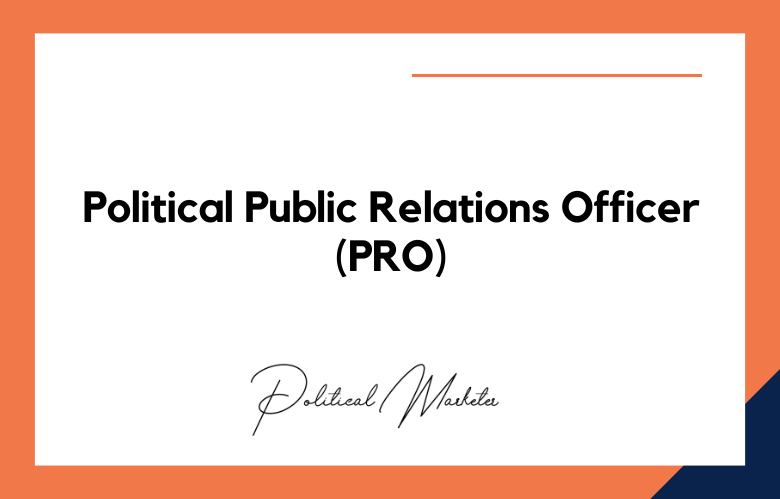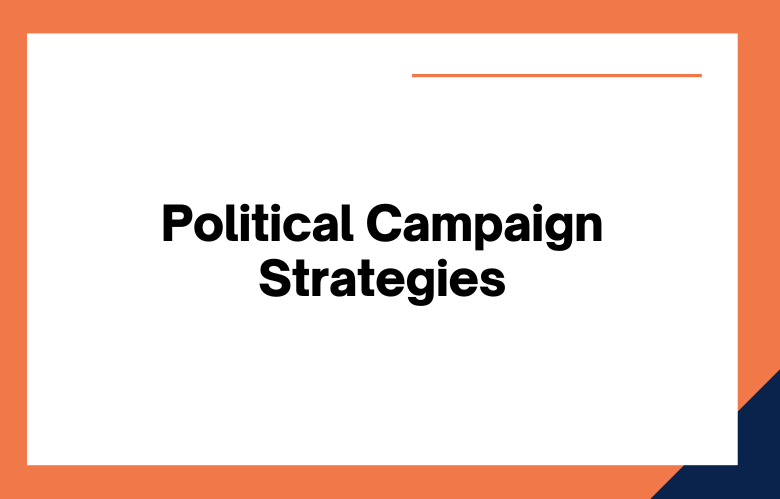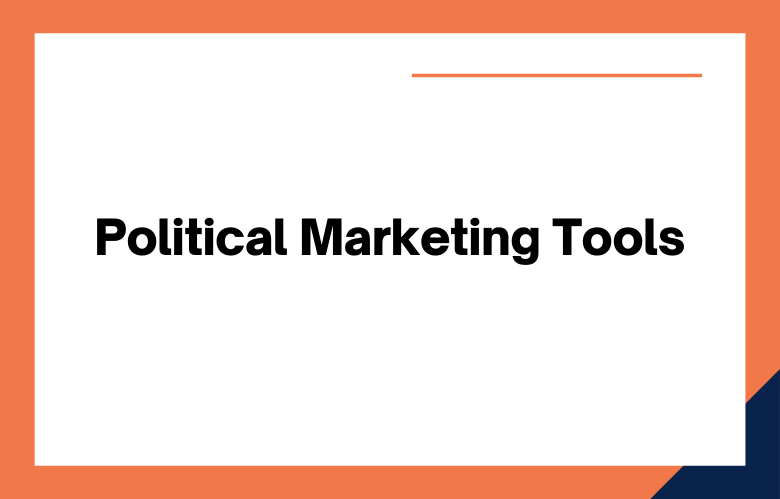The advent of AI is transforming how political leaders and organizations communicate and engage with the public. Here are some key ways AI is used to enhance political communication and public relations.
-
AI-powered sentiment analysis: AI can analyze large volumes of social media and news data to give political candidates and parties insights into public sentiment and help them craft more effective messaging.
-
Personalized campaign messaging: AI can help political campaigns tailor their messages to individual voters based on their interests, concerns, and demographics, leading to more effective persuasion.
-
Automated content generation: AI can generate news articles, social media posts, and even speech drafts, freeing campaign staff to focus on higher-level strategy.
-
Real-time media monitoring: AI can monitor news and social media in real-time, alerting political leaders to emerging issues and enabling them to respond quickly and effectively.
-
AI-powered opposition research: AI can analyze vast amounts of data to uncover potential vulnerabilities in opposing candidates or parties, giving political strategists a competitive edge.
How AI Is Transforming Political Communication and Public Relations
Personalized Messaging
AI enables political campaigns to tailor their messaging to specific groups of voters based on data analysis. For example, campaigns can use AI to identify voters most likely to support a particular policy or candidate and then target them with tailored messaging that addresses their concerns and interests.
Real-time Data Analysis
AI is also used to analyze real-time data on public sentiment, helping political leaders and organizations adjust their messaging and strategies in response to changing circumstances. For example, AI can analyze social media data to identify trends and topics gaining traction, allowing campaigns to respond quickly and effectively.
Automated Responses
AI-powered chatbots and virtual assistants can provide instant responses to common inquiries, improving the speed and efficiency of political communication. This can help to alleviate the burden on campaign staff, allowing them to focus on more complex tasks.
Improved Targeting
AI can help political campaigns target their messaging and outreach efforts more effectively, ensuring that resources are allocated where needed. For example, AI can help campaigns identify the most effective channels and platforms for reaching specific groups of voters based on data analysis.
Predictive Analytics
AI can analyze large datasets to predict the likely outcome of campaigns and policies, enabling political leaders and organizations to make more informed decisions. For example, AI can predict voter turnout or model the impact of different policy scenarios.
Ethical Considerations
While AI can potentially enhance political communication and public relations, it raises important ethical considerations. Political leaders and organizations must ensure they use AI responsibly and ethically and remain accountable to the public. This includes addressing issues such as data privacy, algorithmic bias, and transparency in AI decision-making.
AI-Powered Politics: How Artificial Intelligence is Revolutionizing Political Communication
The rise of AI is changing the landscape of political communication, offering new opportunities and challenges for politicians, campaigns, and voters alike. Here are some key ways in which AI is revolutionizing political communication:
Personalized Messaging
AI enables political campaigns to tailor their messaging to specific voters based on their interests, demographics, and past behavior. This can make political communication more effective and relevant to individual voters.
Automated Communication
AI-powered chatbots and virtual assistants can respond instantly to common inquiries, freeing time for campaign staff to focus on more complex tasks.
Targeted Advertising
AI can help political campaigns target their advertising more effectively, reaching the right audiences with the right messages at the right time.
Sentiment Analysis
AI can analyze social media and other data sources to track public sentiment and identify emerging issues and concerns. This can help politicians and campaigns to stay ahead of the curve and respond effectively to public opinion.
Language Analysis
AI can analyze political speeches, debates, and other forms of communication to identify key themes, messages, and strategies. This can help politicians and campaigns to refine their messaging and improve their effectiveness.
Misinformation Detection
AI can help to detect and counter misinformation and fake news, helping to ensure that political communication is accurate, honest, and trustworthy.
Ethical Considerations
The use of AI in political communication raises critical ethical considerations, including issues of transparency, accountability, and fairness. It is crucial to ensure that AI is used ethically and responsibly in political communication to maintain public trust and uphold democratic values.
The Rise of AI in Public Relations: Transforming Political Communication Strategies
As AI becomes more prevalent in public relations, political communication strategies are also evolving. Here are some key ways in which AI is transforming political communication strategies:
Personalized Messaging
AI can help political campaigns tailor their messaging to specific audiences based on their interests, demographics, and past behavior. This allows for more targeted and effective communication.
Predictive Analytics
AI can analyze large datasets to predict the likely outcome of campaigns and policies, helping political strategists to make more informed decisions.
Social Media Analysis
AI can analyze social media data to identify emerging issues, trends, and public sentiment, allowing political campaigns to adapt their strategies in real-time.
Content Optimization
AI can analyze the performance of political messaging and content, helping campaigns optimize their messaging and improve its effectiveness.
Automated Responses
AI-powered chatbots and virtual assistants can provide instant responses to common inquiries, improving the efficiency and effectiveness of political communication.
Misinformation Detection
AI can help to detect and counter misinformation and fake news, helping to ensure that political communication is accurate and trustworthy.
Ethical Considerations
As with any use of AI, it is crucial to ensure that AI is used ethically and responsibly in political communication strategies. This includes addressing transparency, accountability, and fairness to maintain public trust and uphold democratic values.
From Bots to Votes: AI’s Impact on Political Campaigns and Public Relations
Political campaigns and public relations are transforming as AI technology becomes increasingly prevalent and sophisticated. From targeted messaging to automated communication, AI provides campaigns with new tools and strategies to engage voters, shape public opinion, and achieve their objectives.
One of the most significant impacts of AI on political campaigns is its ability to enable more precise targeting of voters. AI algorithms can analyze large datasets, including voter registration records, social media activity, and consumer behavior, to identify and target key voter segments with personalized messaging.
This allows campaigns to tailor their communication strategies to the specific interests, concerns, and demographics of different voter groups, potentially increasing the effectiveness of their messaging and outreach efforts.
AI and the Art of Persuasion: How Political Communication is Changing
Integrating AI into political communication has significantly shifted how political messages are crafted and disseminated. AI has introduced new methods of persuasion that are changing the landscape of political communication.
One way AI is changing political communication is through predictive analytics. By analyzing large datasets, AI can identify patterns and trends that can be used to predict voter behavior and preferences. This information can then be used to tailor political messages to specific audiences, increasing their effectiveness.
Another way AI is impacting political communication is through the use of natural language processing. AI algorithms can analyze large volumes of text data to understand the language and messaging that resonates with voters. This information can be used to optimize political messages, making them more persuasive and impactful.
Unleashing Intelligent Machines: AI’s Influence on Political Messaging
The development of AI has led to a significant shift in how political messaging is crafted and disseminated. AI algorithms can analyze vast amounts of data to identify patterns and trends that can inform the creation of more effective political messages.
One of the key ways in which AI is influencing political messaging is through the use of predictive analytics. By analyzing voter behavior, demographics, and preferences data, AI can help political campaigns identify the most effective messaging strategies and tailor their messages to specific audiences.
Conclusion:
AI transforms political communication and public relations by enabling personalized messaging, real-time data analysis, automated responses, improved targeting, and predictive analytics.
These capabilities can potentially enhance the effectiveness and efficiency of political campaigns and governance. However, the use of AI in politics also raises important ethical considerations that must be addressed to ensure that AI is used responsibly and in the public interest.
As AI continues to evolve, it will be crucial to monitor its impact on political communication and public relations and to develop policies and practices that maximize its benefits while minimizing its risks. Overall, the future of AI in politics promises to be both exciting and challenging as we navigate the opportunities and challenges of this transformative technology.
Call: +91 9848321284
Email: [email protected]
Frequently Asked Questions (FAQs)
What is AI’s role in political communication today?
AI helps personalize messaging, automate content creation, analyze public sentiment, and optimize communication strategies in real time.
How does AI improve public relations for political leaders?
It enables faster response to media trends, manages reputation via monitoring tools, and generates tailored press releases or social content.
Can AI write political speeches or social media posts?
Yes, generative AI tools can draft speeches, tweets, or blog posts, which can then be refined by human editors for tone and accuracy.
How does AI help in sentiment analysis during elections?
AI scans social media, news, and forums to gauge public mood, enabling campaigns to adapt their messages based on public sentiment trends.
What AI tools are used in political PR?
Tools include NLP-based chatbots, predictive analytics software, generative AI writers, automated press release systems, and crisis monitoring dashboards.
How is AI used in political image management?
AI tools track media mentions, flag reputational risks, and help in shaping visual branding and online persona consistency.
Can AI detect misinformation or deepfakes in political content?
Yes, AI-based detection systems can identify manipulated videos, images, or misleading narratives to counter disinformation threats.
How do chatbots assist political campaigns?
They provide automated voter assistance, FAQs, policy explanations, and engagement through websites or messaging apps.
Is AI being used for hyper-targeted political messaging?
Absolutely. AI analyzes demographics, behavior, and interests to deliver micro-targeted messages across email, social media, and mobile apps.
What ethical concerns arise with AI in political PR?
Concerns include privacy invasion, manipulation of voter behavior, algorithmic bias, and lack of transparency in AI-generated content.
Can AI predict voter behavior?
Yes, predictive modeling uses historical and real-time data to estimate voter preferences, turnout likelihood, and campaign impact.
How does AI enhance media strategy in political PR?
By analyzing media trends, optimizing timing, identifying ideal channels, and forecasting which stories or topics will perform best.
What is the role of AI in political crisis management?
AI tools detect emerging risks, simulate response scenarios, and recommend actions to control or neutralize potential PR damage.
How do political parties use AI to monitor opponents?
Through AI-powered social listening, trend analysis, and competitor benchmarking across platforms and press coverage.
Can AI personalize communication at scale?
Yes, AI allows political campaigns to deliver customized messages to millions of voters based on segmented interests and values.
Is AI replacing human roles in political communication?
Not entirely—AI augments human effort by speeding up analysis and creation, but final decision-making and nuanced messaging still require human oversight.
How can AI improve multilingual political outreach?
AI-powered translation and voice synthesis tools allow campaigns to communicate effectively across multiple Indian and global languages.
What are AI-driven press release generators?
These are tools that create draft releases based on prompts or campaign updates, ready for distribution with minimal manual effort.
Can AI analyze the effectiveness of campaign messages?
Yes, AI tracks engagement metrics, sentiment shifts, and voter reactions to determine which messages resonate best with different segments.
What is the future of AI in political communication?
AI will become central to strategy—driving real-time personalization, predictive storytelling, and adaptive communication across all platforms.









